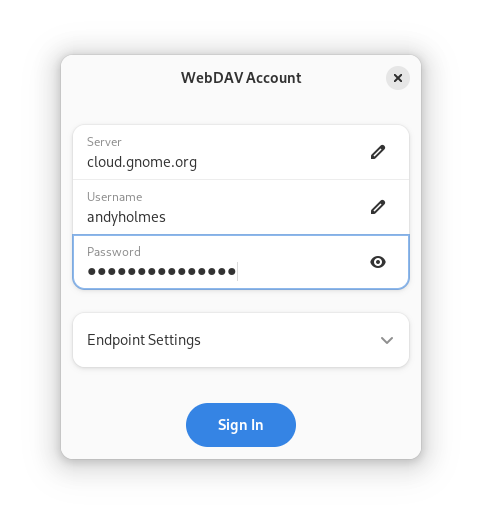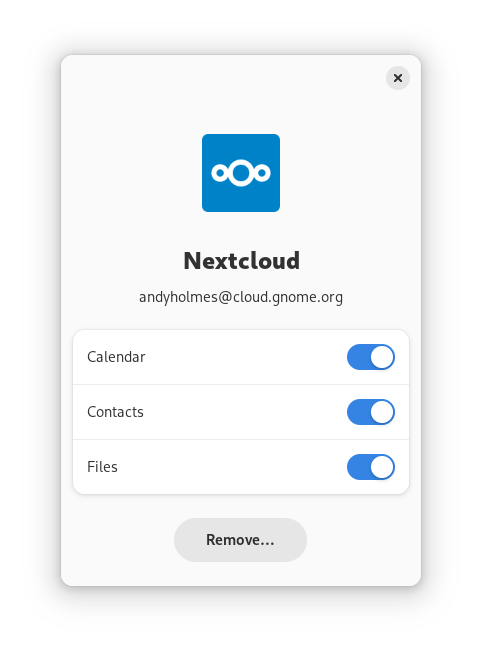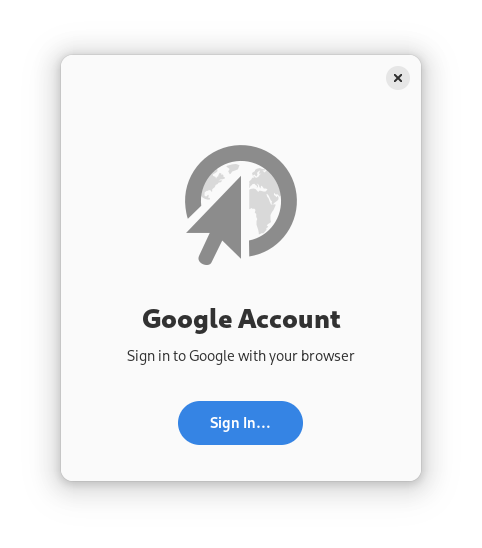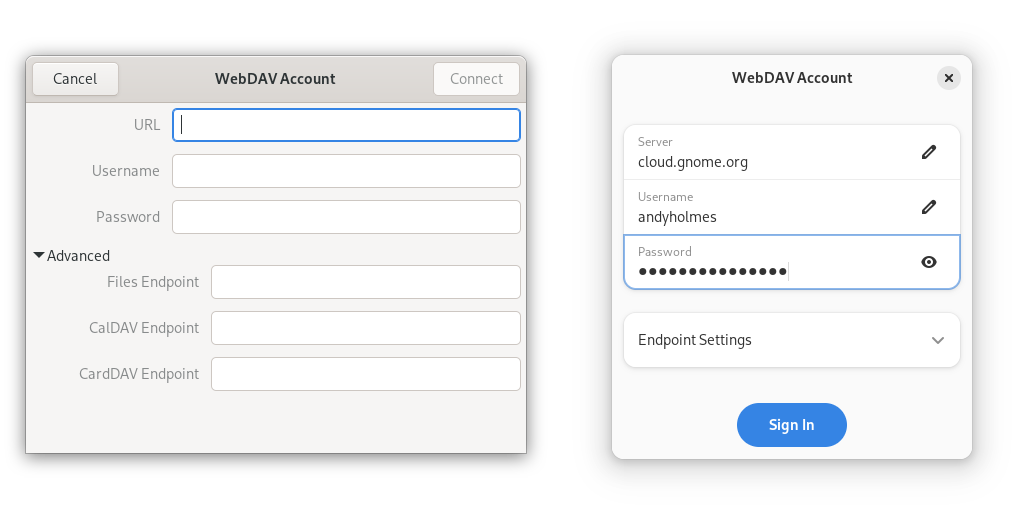One of our goals for the Sovereign Tech Fund is to modernize platform infrastructure, in line with the mission to support security and resilience in open source software. For GNOME Online Accounts, this meant tightening up the code base and shifting focus to prioritize open protocols.
A significant portion of the backend was refactored and tested in tandem with the GNOME Settings side of Online Accounts. By working with development tools like AddressSanitizer we identified and fixed a number of memory and type safety issues in both projects and helped to ensure the resiliency of any new code.
# What did we do
The first thing we wanted to do was get a general WebDAV provider merged. This work was a multi-phase community effort and the majority of the work as part of the STF was adding and testing more thorough and resuable code for DAV discovery and configuration.

The new WebDAV provider then became a base for the Nextcloud provider, which is now simply a branded version.

Another big step to improving reliability and maintainability is updating to the latest dependencies and industry conventions. This meant first supporting OAuth 2.0 in a standard browser so, for example, when you log into a Google account you're doing it with your preferred, trusted browser. This allowed us to remove the old WebKit2 dependency and port to GTK4 and libadwaita.

Although the user interface for adding an account is simple, each account type needs its own, so GNOME Online Accounts has traditionally had a strange API and behavior. In the GTK3 days we used modal dialogs and nested loops in ways that really didn't work out. Nowadays we often approach user tasks like "Pick a File" with simple task-based APIs and now GNOME Online Accounts does, too.

# The Future of Online Accounts
When we're talking about Single Sign-On with GNOME, we're talking about authenticating an account once and making it available to multiple desktop applications. You log into Nextcloud, then when you open GNOME Contacts or Calendar it can access your data using the account credentials. Aside from other hurdles in the project, we have no ability to enforce any real trust model, let alone selectively by application or content type.
The future of GNOME Online Accounts then has less to do with accounts and services than it does with security and content. A user shouldn't have to worry about a calendar app scraping their e-mails and the developer shouldn't have to care about OAuth 2.0 or RFC 5545. Tracker provides a sandbox-friendly data storage framework with a feature set we can build on to give users more control and developers less legwork.
Other aspects of the project have a less certain future. libgdata is currently without a maintainer and having the GNOME Foundation's provider client IDs used almost universally has left us in an awkward relationship with service providers like Google and Microsoft.
This doesn't mean GNOME Online Accounts is going away, but that we're re-orienting to best provide control to users and simplicity to developers. Prioritizing open protocols like WebDAV and modernizing the code base are first steps towards less dependence on closed services and tighter security. A few of our next steps will include new libraries that provide controlled access to content (e.g. contacts) without exposing account credentials to applications.
# Corporate Users
We'd like make a point of inviting our corporate users to reach out and contribute. Some are already in contact or have contributions waiting for review and we thank you for your patience.
Since the focus moving forward will be on open protocols, we will be relying more on contributions from the community to help maintain support for closed services. If you are a business or work for a business that benefits from integration of a proprietary service, consider sponsoring an employee or a developer in the community for support and maintenance of these services.
Contributing upstream is a great way to give back and shows you're an active part of an industry embracing open source, especially if you are the service provider. The GNOME Foundation is always proud to announce collaborations with other parties in its press releases, which reach many other corporate partners and related markets.
# Acknowledgements
We'd like to thank the Sovereign Tech Fund for investing in GNOME Online Accounts. With most maintainers stretched thin, the opportunity to get everyone together for video meetings and the time to take in a whole new codebase would not have been possible without their support.
We'd also like to thank the many members of the GNOME community who lent their experience and ideas, as well as Christoph Wurst from Nextcloud who joined in on a meeting. The work on this project really wouldn't be possible without the combined talent of various backgrounds.